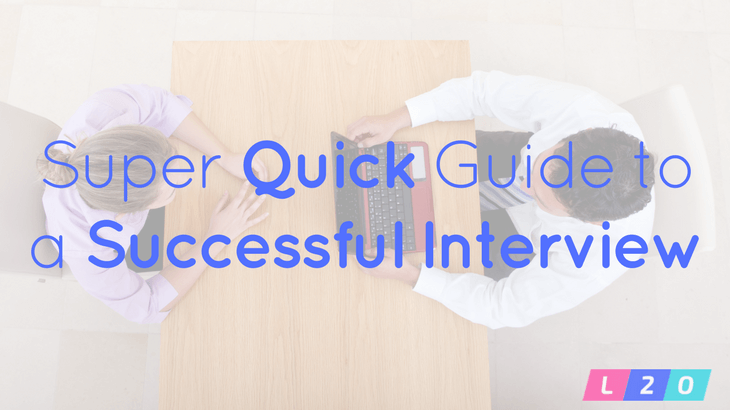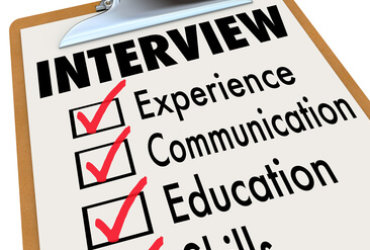A Quick Guide to a Successful Interview

UPDATED: April 18th, 2018 – There is certainly no shortage of interview tips and tricks being passed around. In addition to simple tips (like dressing professionally), there are a few other ways to impress your potential employer that maybe you haven’t heard before.
Though some of these may seem suggestions a bit unusual to you, they can almost ensure interview success. Consider three simple things you can do to successfully complete your next interview.
Do Your Research Before the Interview
The first, and quite possibly the best thing you can do is to thoroughly research the company that you’ll be interviewing with. Don’t end your research by just looking at the company website. Check out their and media accounts as well. You’ll also want to see what others, including employees and customers, are saying about the company.
Search the web, read any recent news articles and, if possible, talk to personal contacts on LinkedIn or elsewhere. This can help you to determine a lot about the company values, culture and work environment.
Not only will this arm you with insight, but you can also impress your interviewer by showing that you’ve gone above and beyond to learn as much as possible beforehand.
Decide on Relevant Information
Before any interview, you should decide on your skills, accomplishments, and experience that would be most beneficial to highlight. One of the biggest sources of interview pitfalls is struggling to respond to these kinds of questions on the spot, right when you are asked. Instead, think of a few main points that you’d like to share beforehand.
Think of how they relate to the position you are interviewing for and why they can be considered as strengths or positives. They can then be more clearly explained, will have more impact and also be more memorable for the employer.
Prepare a Few Thoughtful Questions
99% of employers want someone who is attentive and will take care in fulfilling their job duties. Even before landing the job, you can demonstrate such attentiveness and care by thinking of a few questions for your interviewer. For example, you can ask for clarification on something mentioned during the interview, about current company events and recent or upcoming changes.
By doing this, you silently assure your interviewer that, if you are hired, you won’t simply clock in and clock out, viewing the job as
only a paycheck. Instead, you show that you have a sincere interest in the company.
Preparing for an interview with these three simple steps will set up a good foundation for success. Research will make you aware of what to expect both during the interview and beyond. Carefully choosing what experience to share can make you a more qualified candidate for the position. Preparing thoughtful questions shows interest and attention to detail, which is very desirable to employers.
Include Your Sense Of Humor
Interviewers aren’t above a laugh or two. Remember that they aren’t just an employer, but people first and foremost. If you’re feeling too nervous, the interview can be awkward for everyone involved. Throwing in a small, appropriate joke may help break the ice and boost your confidence and soothe your nerves.
Don’t Forget To Breathe
When we’re stressed, our breathing patterns change and we tend to take short, quick, shallow breaths from the upper part of our chest. During your interview, you’ll want to appear as calm and collected as possible, but without proper breathing technique, your speech will speed up and you will often run out of breath.
A great way to practice proper breathing technique and appear much calmer during your interview is to take multiple slow, deep-into-the-belly breaths through your nose, then breathe out slowly through your mouth. When you take these deep, low breaths, your diaphragm expands and stimulates your vagus nerve, which activates the “relaxation response”.
The “relaxation response” (or the polar opposite of the “fight or flight” response that happens when we’re stressed) is a physiological response of the body in which the brain waves, heart rate, metabolism and blood pressure all slow down.
Keeping the importance of proper breathing in mind before your next interview can put you back in control of your nerve-wracked body and boost your focus.

Still looking for some more interview tips? Check out this article on 5 Confidence Boosters For An Interview.


